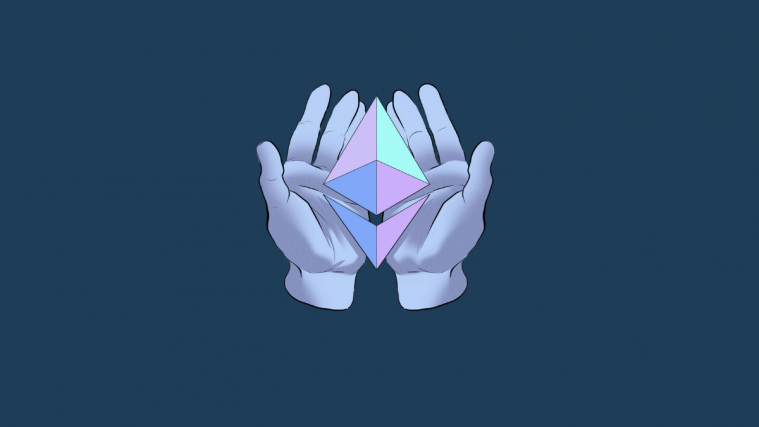With the explosion in interest in cryptocurrencies following Bitcoin‘s big boom, many an investor’s eye has turned towards upcoming cryptocurrencies in search of the next big up-and-comer. Valued at over $1000 USD per Ether at the time of this writing, Ethereum currently stands in the number two spot in terms of cryptocurrency value. As such, many wonder if an early investment in Ethereum can use the same fortunes that Bitcoin yielded some not too long ago.
But, as anyone who has watched the market for a while can attest to, there are no promises when it comes to the Cryptocurrency market, though more mature than it was a few short years ago, remains as turbulent as the worst whitewater rapids — exhilarating, dangerous, and (potentially) rewarding.
What is Ethereum?
Here are all the essential bits to know about Ethereum.
Not Just a Cryptocurrency

Before we go any further, it’s important to clarify the distinction between Ethereum and the cryptocurrency based on the Ethereum Blockchain known as Ether. The latter is a cryptocurrency similar to Bitcoin that incentivizes the contribution of the computational power the Ethereum network needs. Mined just like Bitcoin, those contributing their computing power to the decentralized network and aiding in the proof-oof-work process required to add to the Blockchain are rewarded with Ether and one other currency, Gas.
A Different Kind of Internet

When Bitcoin first came into being, it fused together three pre-existing concepts: decentralized network architecture, high-level cryptography, and the Proof of Works concept that together created what is known as the blockchain.
The Blockchain is the underlying technology that preserves the integrity and security of the Bitcoin network, allowing users to verify transactions in ways to protect them against retroactive manipulation. What Ethereum does is use this technology for more than just cryptocurrencies.
Spurred on by a rising surge of privacy concerns, Ethereum’s chief aim is to create an open platform that can serve as a clearer, more transparent version of the internet up0n which software and apps can run without any third-party standing as a middle man between users. Typically, any and all user data is stored on a server that is run and maintained by a singular entity.
If hacked, damaged, or otherwise compromised, this server’s data can be lost or stolen. It also leaves open the possibility of malicious or unethical activity on the part of those storing the data — for example, selling it or using it for other nefarious purposes that you wouldn’t knowingly give permission for.
What Ethereum does is, instead of storing data on centralized servers, distribute it across the entire network of machines contributing to the Ethereum blockchain. This not only protects the data from an “all your eggs in one basket” scenario, but it also makes it almost impossible to manipulate when built upon correctly.
Thus, rather than thinking of Ethereum as simply a cryptocurrency like Bitcoin, you can think of Ethereum as a completely decentralized Internet.
How Does Ethereum Work?

Now that we’ve covered the broad strokes of what Ethereum aims to do — provide a transparent, secure, decentralized platform for users to create and host software — we can talk about the nitty-gritty of how Ethereum goes about it.
Smart Contracts

The building block of Ethereum is the smart contract: a blockchain-based program coded to execute specific functions when certain conditions are met. The beauty of the smart contract is that, once coded, it cannot be fooled around with and, more importantly, they eliminate the middleman between individuals. The latter is one of the main selling points of Ethereum and the concept of decentralization in general.
Take for example a company that lets individuals put their own bicycles up for rent as e-bikes protected by a digital lock produced by the company. Unless you are yourself the owner of the company that sells the locks, you have to trust the company that mediates the exchange and pay a fee for the service. You entrust the company with the security of your bike and the money from the renter; the renter trusts the company to unlock the digital lock for them once they’ve paid their dues.
When this works, this is a beneficial arrangement between all three parties. The problem is that it is structurally rife with risk. All of your user data is stored on a server run and operated by the E bike company. Not only are you trusting the company to never mishandle your data, but you’re also trusting them to keep it secure 100% of the time. And companies are not always successful.
In 2017 the credit score auditing company Equifax was the subject of an immense cyberattack that exposed the sensitive data of tens of millions of Americans, including Social Security numbers. birthdates, addresses, and, in some cases, credit card information.
While none of the data seemingly ended up being used for financial fraud, this is considered a silver lining of the fact that it may have been a state-sponsored cyberattack by the Chinese military looking for usable information rather than an attempt to steal actual money.

Software developed for Ethereum distributes its data across the network, completely decentralized. Because there is no singular server for attackers to penetrate, and the data is instead distributed across the network of individual computers contributing to the blockchain, no one entity is in control of the data. This makes it much, much safer than a centralized server run and operated by a singular entity.
Smart contracts also protect the participants from, well, each other. This is because the “terms” in a smart contract are really If/Then statements that are automated and impossible to change once settled upon, preventing either party from failing to uphold their end of the bargain.
For example, If you’re renting out a car with a digital lock, you can enter into a smart contract with your prospective renter that works something like: If X dollars is paid by Renter to Rentee, then access to the car is granted to Renter. Automatically. Once the renter has made the payment to you, the smart contract immediately unlocks the car for them.
You, as the renter, cannot deny them access as long as they have fulfilled their end of the bargain by paying you. Likewise, the renter will automatically be locked out of the car as soon as they stop making the required payments.
It is all subject to the terms of the smart contract and smart contract alone. There is no third-party between them they can serve as a vulnerability, both parties are unable to renege on their terms, and the smart contract sits immutable within the blockchain.
These smart contracts serve as the basis for the entire Ethereum network; decentralization at the, well, center of everything. So to speak.
Ether

As we’ve established, Ethereum itself is a network of computers that together function something like a decentralized supercomputer that maintains the blockchain and processes transactions on the network. However, each of those individual nodes in the network costs money.
Hardware needs to be purchased, equipment needs to be operated and servers maintained in order to contribute the computing power the network needs to run. By purchasing Ether users are able to incentivize additions to the blockchain and the computational effort required to do so.
Gas

Gas is a separate digital currency that is part of the incentivization strategy for contributors to the Ethereum network. Because computing power is a finite resource within the network, it is subject to its own laws of supply and demand. To use some of the computational power to execute smart contracts and add them to the blockchain, contributors need to be paid.
Thus, with every smart contract users pay for a certain amount of “gas” to fund the computational effort required to add it to the blockchain. How much gas your code requires depends on how much code is being added – incentivizing leader, cleaner, more efficient code for software created On Ethereum. This helps make the whole network run more efficiently.
What Is Hosted on Ethereum?

Well we’ve talked a lot about how the Ethereum network works and the value it aims to provide its users in terms of privacy and security, but what does the actual landscape of the Ethereum network look like? In what ways does it use the blockchain and is there anything particularly interesting or attractive to mainstream users on this sort of alternate Internet?
D-Apps

The primary feature of the Ethereum network are the dApps, or “decentralized apps” that call the network home. dApps may not look any different to the end-user from a typical app or similarly mainstream software package but differ in a few key aspects.
The fundamental difference between a dApps and an app is that it, like the name suggests, is run using the power of the decentralized network and stores its data on the blockchain. This makes dApps more secure than traditional apps for the same reason a smart contract is secure; dApps do not store their data on a centralized server that can be singularly targeted by cybercriminals.
E-Commerce

There are numerous e-commerce platforms posted on Ethereum, everything from art, fashion, And unique digital collectibles all the way to way to a decentralized music streaming platform. Hosting a digital marketplace on Ethereum Is argued to be safer and more secure for the consumer as well as more beneficial to buyers/sellers by the eradication of the middleman. It’s pitched something like if Amazon did everything for free and didn’t store any user data — which sounds great.
Games

Right now you can play numerous decentralized games completely powered by the Ethereum network. There’s a voxel-based mash-up of Minecraft and Second Life, a Pokémon-like collectible creature game whose creatures can sell for hundreds of dollars, and even a trading card game that plays like a decentralized Hearthstone and more. Yeah, there’s a lot to be excited about and we highly encourage any crypto-enthusiast to take a look.
Finance Tools

The largest selection of dApps available right now unsurprisingly cater to financial markets — both crypto and traditional markets. Users can be connected with lenders and borrowers, utilize the wide range of production tools, as well as a few crypto-specific options like token swaps and other utilities.
Should You Use Ethereum dAPPS?

The answer to the question of whether or not you should use Ethereum Is the same as with any other more traditional Apps: if you want to. By and large, the available dApps hosted on Ethereum cater to those interested in ensuring their privacy and believe in the security of blockchain-based technology. They are, by definition, unrestricted and uncensored and exist within a system ostensibly designed to promote lean and efficient coding.
Besides your own user experience, it may be worthwhile investing your time and money as a consumer into Ethereum-based apps if you believe in the platform’s overall desire to see a completely decentralized internet. For now, at least, you have a basic grasp on how Ethereum works and what it, as a platform, aims to offer its users.
Armed with this knowledge we recommend you go and fiddle around with what Ethereum has to offer and make your own judgments.
Got more Ethereum questions? We’re not surprised. It’s an intimidating crypto-rabbit hole at first but nonetheless an interesting one. Reach out to us in the comments below — we’d love to help!






